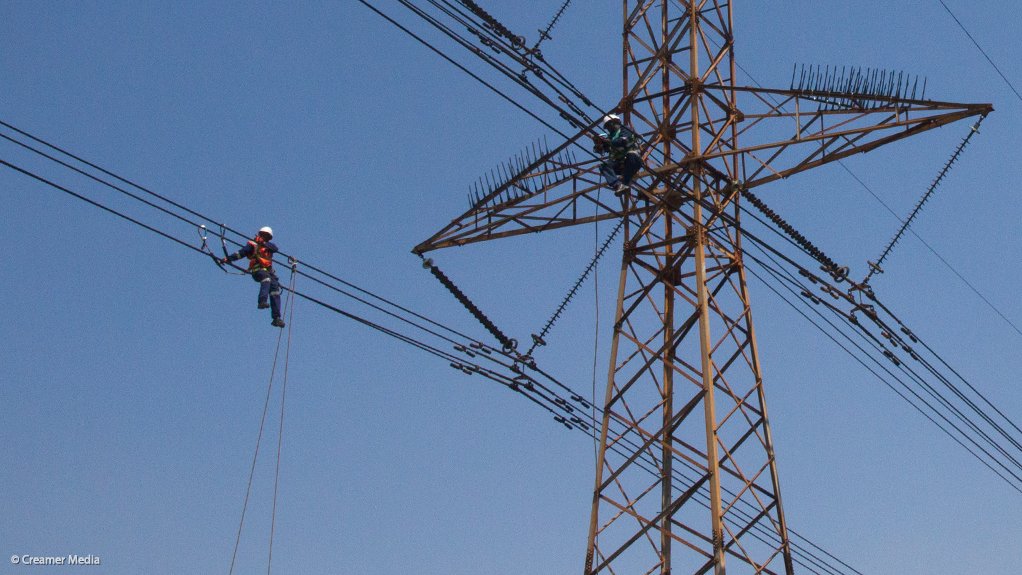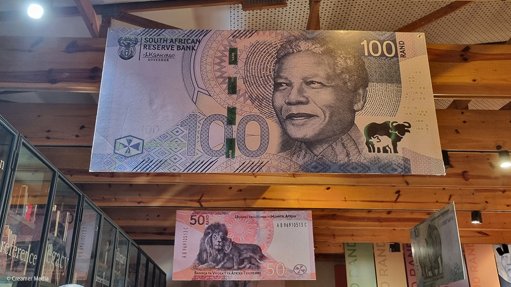Public procurement uncertainty undermining industrialisation potential of big grid roll-out – Seifsa
Steel and Engineering Industries Federation of Southern Africa (Seifsa) CEO-designate Tafadzwa Chibanguza says the prevailing uncertainty surrounding South Africa’s public procurement rules in relation to local content has emerged as a major obstacle to reigniting industrialisation on the back of the country’s large grid roll-out.
In addition, he argues that the recently released request for proposals (RFP) for South Africa’s inaugural procurement of independent transmission projects (ITPs) is so heavily geared towards foreign investors that it could leave domestic capacity stranded.
Speaking at a National Business Initiative dialogue on the economic and industrial potential of the Transmission Development Plan (TDP), Chibanguza underlined the potential of the grid roll-out to revitalise manufacturing, especially in the metals and engineering subsector.
“Beyond the immediate benefits of energy sovereignty and cleaner energy supply, the TDP stands as the largest build programme South Africa will undertake in the next decade, creating an unparalleled opportunity to anchor a bold industrialisation agenda.”
It could prove especially important for the metals and engineering value chain, owing to the metals-intensity of the suite of products required, which ranged from fabricated steel structures, to cables, transformers and circuit breakers.
It is estimated that the National Transmission Company South Africa (NTCSA), which is the custodian of the TDP, together with private ITP investors, will need to spend some R400-billion to build 14 500 km of new powerlines and add 133 000 MVA of additional transformers to the grid by 2034.
Significant attention is, thus, being given to whether the roll-out could be leveraged to help revive South Africa’s ailing manufacturing sector, as well as to rebuild capacity lost as a result of an extended period during which investment in the transmission system was suboptimal, and stop/start in nature.
However, Chibanguza warned that delays to the finalisation of the country’s new public procurement framework had made previous local-content designations unenforceable and had created an “untenable situation” whereby State organs had become some of the country’s largest importers of goods.
“The revised Public Procurement Bill provides a potential baseline for advancing an industrialisation agenda. However, the delays in developing supporting regulations – particularly around designation, localisation, and preferential procurement – pose a real risk,” he warned.
Describing it as the “elephant in the room”, he bemoaned the fact that long-term planning was currently proceeding on the basis of interim regulations that excluded local preferences in the form of designations.
“Those interim regulations have effectively nullified all historic preferences that were included in the Public Finance Management Act around localisation.
“You had power transformers designated for local procurement, you had steel products designated, and electrical cables but those designations no longer apply,” Chibanguza explained.
Seifsa was, thus, appealing for a restatement by the National Treasury of clear localisation requirements for the TDP and an enforcement of those requirements.
In addition, it was preparing to make a formal submission to government in relation to the way the RFP issued for the inaugural ITP procurement programme had been drafted.
While stressing Seifsa’s support for the ITP programme, which he believed would support an acceleration of grid projects, Chibanguza reported that many industry participants had expressed unhappiness with the contents of the RFP.
“The feeling is that the current RFP and the way it has been put together is structured for foreign companies,” he explained, indicating that it would elaborate on these concerns in its formal submission to government and the NTCSA.
Article Enquiry
Email Article
Save Article
Feedback
To advertise email advertising@creamermedia.co.za or click here
Press Office
Announcements
What's On
Subscribe to improve your user experience...
Option 1 (equivalent of R125 a month):
Receive a weekly copy of Creamer Media's Engineering News & Mining Weekly magazine
(print copy for those in South Africa and e-magazine for those outside of South Africa)
Receive daily email newsletters
Access to full search results
Access archive of magazine back copies
Access to Projects in Progress
Access to ONE Research Report of your choice in PDF format
Option 2 (equivalent of R375 a month):
All benefits from Option 1
PLUS
Access to Creamer Media's Research Channel Africa for ALL Research Reports, in PDF format, on various industrial and mining sectors
including Electricity; Water; Energy Transition; Hydrogen; Roads, Rail and Ports; Coal; Gold; Platinum; Battery Metals; etc.
Already a subscriber?
Forgotten your password?
Receive weekly copy of Creamer Media's Engineering News & Mining Weekly magazine (print copy for those in South Africa and e-magazine for those outside of South Africa)
➕
Recieve daily email newsletters
➕
Access to full search results
➕
Access archive of magazine back copies
➕
Access to Projects in Progress
➕
Access to ONE Research Report of your choice in PDF format
RESEARCH CHANNEL AFRICA
R4500 (equivalent of R375 a month)
SUBSCRIBEAll benefits from Option 1
➕
Access to Creamer Media's Research Channel Africa for ALL Research Reports on various industrial and mining sectors, in PDF format, including on:
Electricity
➕
Water
➕
Energy Transition
➕
Hydrogen
➕
Roads, Rail and Ports
➕
Coal
➕
Gold
➕
Platinum
➕
Battery Metals
➕
etc.
Receive all benefits from Option 1 or Option 2 delivered to numerous people at your company
➕
Multiple User names and Passwords for simultaneous log-ins
➕
Intranet integration access to all in your organisation





















